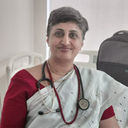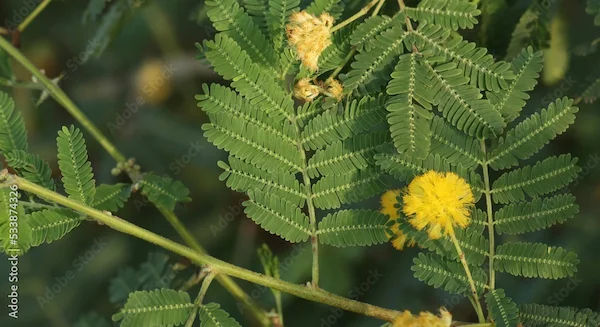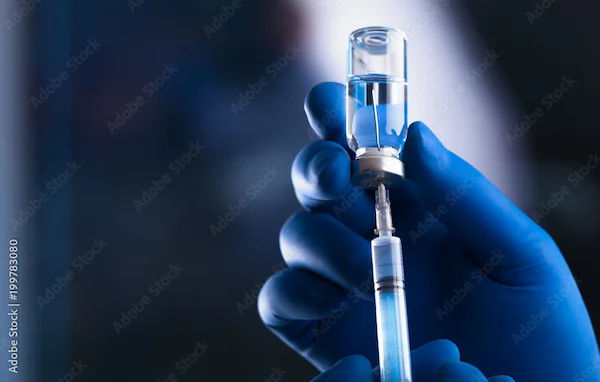Rickettsial Disease Overview and Treatment Options
Get a clear overview of Rickettsial diseases. Learn about their causes, common symptoms, diagnosis, and effective treatment options for these bacterial infections.

Written by Dr. Vasanthasree Nair
Reviewed by Dr. Mohammed Kamran MBBS, FIDM
Last updated on 13th Jan, 2026

Introduction
Rickettsial diseases are a group of infections caused by bacteria from the Rickettsia family. These infections are usually spread through the bites of infected ticks, fleas, mites, or lice. While they are not very common, they can cause serious health problems if not treated early.
In this article, we will discuss what rickettsial diseases are, their symptoms, causes, and treatment options. We’ll also share some helpful tips on prevention and when to seek medical help.
What Are Rickettsial Diseases?
Rickettsial diseases are bacterial infections that affect humans and animals. Some well-known types include:
Rocky Mountain Spotted Fever (RMSF) – Spread by ticks.
Scrub Typhus – Spread by mites.
Epidemic Typhus – Spread by body lice.
Murine Typhus – Spread by fleas.
These infections can cause fever, rash, and other flulike symptoms. If left untreated, they can lead to severe complications, including organ damage.
Symptoms of Rickettsial Diseases
Symptoms usually appear within 1-2 weeks after being bitten by an infected insect. Common signs include:
High fever (often above 102°F or 39°C)
Severe headache
Muscle and joint pain
Rash (may start on wrists and ankles, then spread)
Nausea and vomiting
Fatigue and weakness
Swollen lymph nodes (in some cases)
If you notice these symptoms after being bitten by a tick, flea, or mite, consult a doctor immediately. Early treatment is crucial.
Causes and Risk Factors
Rickettsial diseases are caused by bacteria transmitted through:
Tick bites (common in grassy or wooded areas)
Flea bites (from infected rats or cats)
Mite bites (especially in scrub typhus)
Lice bites (in crowded or unhygienic conditions)
People at higher risk include:
Those who spend time outdoors (hikers, campers, farmers)
Pet owners (if pets carry fleas or ticks)
People living in areas with poor sanitation
How Are Rickettsial Diseases Diagnosed?
Doctors diagnose rickettsial infections based on:
Symptoms and medical history (recent insect bites or travel)
Blood tests (to detect antibodies or bacteria)
PCR tests (to confirm the type of infection)
Since symptoms can resemble other illnesses (like flu or dengue), early testing is important. If you suspect an infection, book a lab test or doctor consultation through Apollo24|7 for quick diagnosis.
Consult Top Specialists for Personalised Tips
Treatment Options
The good news is that rickettsial diseases can be treated effectively with antibiotics. The most commonly used ones are:
Doxycycline (firstline treatment for adults and children)
Chloramphenicol (alternative in some cases)
Azithromycin (for pregnant women or those allergic to doxycycline)
Key points about treatment:
Start antibiotics early (delays can lead to complications).
Complete the full course (even if symptoms improve).
Hospitalization may be needed in severe cases (for IV antibiotics and monitoring).
Prevention Tips
Since rickettsial infections spread through insect bites, prevention is key. Follow these steps:
1. Avoid Insect Bites
Wear long sleeves and pants in grassy or wooded areas.
Use insect repellents (containing DEET or permethrin).
Check for ticks after outdoor activities.
2. Keep Your Surroundings Clean
Control flea and rodent infestations at home.
Wash bedding regularly if lice are a concern.
3. Protect Your Pets
Use flea and tick prevention treatments for pets.
Keep pets away from wild animals that may carry fleas.
4. Seek Early Medical Help
If you develop fever and rash after an insect bite, see a doctor immediately.
When to See a Doctor?
Seek medical help if you experience:
High fever with severe headache.
Unexplained rash after a tick or flea bite.
Symptoms worsening despite home care.
Early treatment can prevent serious complications like kidney failure, lung damage, or even death in rare cases.
Final Thoughts
Rickettsial diseases are treatable if caught early. Being aware of the symptoms, taking preventive measures, and seeking timely medical care can make a big difference.
If you suspect an infection, don’t wait—consult a doctor or book a test through Apollo24|7 for quick and reliable healthcare support. Stay safe, stay informed, and take care of your health!
Call Apollo 24|7 for expert medical advice or to schedule a consultation. Early detection saves lives!
Consult Top Specialists for Personalised Tips

Dr P Jagadeesha Chandra
General Physician/ Internal Medicine Specialist
37 Years • MBBS, MD
Bengaluru
Apollo Hospitals Jayanagar, Bengaluru

Dr. Aakash Garg
Gastroenterology/gi Medicine Specialist
12 Years • MBBS, DNB (Medicine), DrNB (Gastroentrology).
Bilaspur
Apollo Hospitals Seepat Road, Bilaspur
(150+ Patients)

Dr. Ashmitha Padma
General Physician/ Internal Medicine Specialist
5 Years • MBBS, MD Internal Medicine
Bengaluru
Apollo Hospitals Jayanagar, Bengaluru

Dr. Sitaram V. Chowti
General Physician/ Internal Medicine Specialist
40 Years • MBBS, MD
Bengaluru
Apollo Hospitals Jayanagar, Bengaluru
(125+ Patients)

Dr. Sunil S Bohra
General Physician/ Internal Medicine Specialist
23 Years • MBBS, DNB (Internal Medicine), FIAE
Bengaluru
Apollo Hospitals Sheshadripuram, Bengaluru
(50+ Patients)
.webp)



